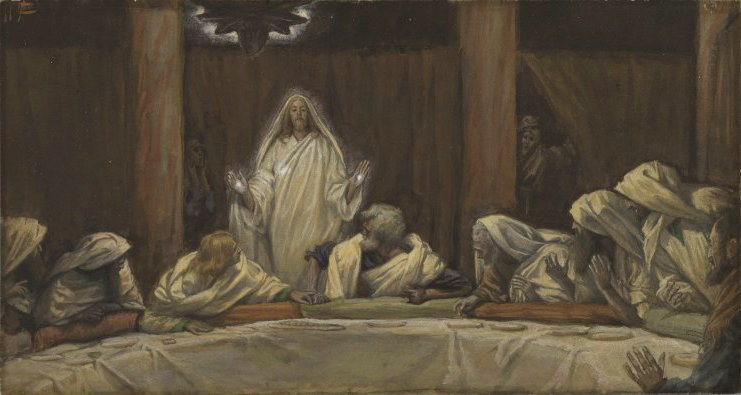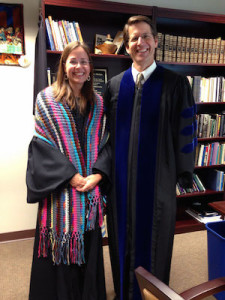米国疾病予防管理センター(CDC)は、8週間の間、公的な集会を延期または中止するよう正式に勧告した。感染リスクの高い人々にサービスを提供する組織の場合、10人以上の集会が対象となるが、ほとんどの教会ではすでに礼拝自体を休止している。
イースター礼拝(4月12日)の運命はすでに定まっている。信徒に対してではなく、ウェブカメラに向かって説教する事態がここまで長引くとは予想していなかった牧師も多いだろう。
[toggle]The Centers for Disease Control and Prevention issued a formal recommendation that public gatherings be postponed or canceled for the next eight weeks. For organizations that serve high-risk populations, the threshold is 10 people, though most churches aren’t even doing that. Easter worship (April 12) as we’ve known it is doomed. Early on, many pastors probably presumed that preaching to cameras rather than congregations wasn’t going to encompass a whole season. [/toggle]事態は急速に悪化している。2カ月にわたる礼拝の休止が、減少の一途をたどる礼拝出席者数へのとどめの一撃となるのではないかと心配する牧師が多くいることは間違いない。
何年もの間、私たち説教者は、「教会にいるからといって、あなたがクリスチャンになるわけではない」と語ってきた(しばしば「ガレージにいるからといって、あなたが車になるわけではないでしょう?」という使い古された表現を添えて)。私たちは人々に、それを文字どおり受け止めてほしいと思っていたわけではない。
米国ではすでに、教会に通う人の数は減少し続けている。教会に残った一握りの人々さえ、日曜日を家で過ごすことに慣れてしまったら、いったい何が起こるだろう。ただ、ほかのあらゆることがそうであるように、不安の中にあってそう断言するのは時期尚早(じきしょうそう)というものだ。
[toggle]Events are moving quickly from bad to worse. No doubt pastors worry that two months of canceled worship services will provide the proverbial straw to break the camel’s back of congregational decline. For years we preachers told our congregations how “coming to church doesn’t make you a Christian” (usually followed by the tread-bare analogy about how being in a garage doesn’t make you a car). We never really meant to be taken seriously. Fewer and fewer adults already report attending church in America. What’s going to happen when this last remnant gets used to spending Sundays at home? Like everything in this anxious moment, it’s too soon to tell. [/toggle]世界で初めてのイースター。それまでイエスにつき従っていた弟子たちは、仲間から離れた場所に一緒に閉じこもり、恐怖におびえていた。それはパンデミック(世界的大流行)の恐怖ではない。イエスを十字架につけ、弟子たちの行方を追っている宗教者や為政者への恐怖だ。
弟子たちはイエスのことも恐れていたかもしれない。彼らはイエスに、「あなたを拒んだり、関係を否認したりすることなどありません」と誓っていたのにもかかわらず、いったん状況が悪化すると、信仰深い女性の小さなグループをあとに残し、たちまちのうちに逃げ出してしまったのだ。そして今、イエスの遺体は行方が分からないというではないか!

ジェームズ・ティソ「弟子の中に現れたキリスト」
しかし、弟子たちが「社会的距離」を置いて隠れても、それは意味がなかった。イエスは彼らの真ん中に現れて、赦(ゆる)しと祝福を与える(ヨハネ20:19~21)。それから数週間後、弟子たちは、イエス自身が与えた聖霊によって力を与えられたのだ。
[toggle]The first Easter found the most faithful huddled away from their congregations, hiding out with a different fear. Instead of a pandemic, the disciples were afraid of the religious and political authorities who’d crucified Jesus and were likely coming after them too. Perhaps they also feared Jesus. After all, they’d sworn never to deny or disown him, but when everything went south, they’d scrambled and fled, leaving a small group of women to keep the faith afloat. And now Jesus was loose! The disciples’ socially-distant hideout proved a bad barrier. Jesus appeared in their midst (John 20:19–21) to forgive and to bless and, a few weeks hence, to empower with his very Spirit. [/toggle]パンデミックや自然災害、世界大戦まで、あらゆる危機の中にあって、クリスチャンに奉仕や愛の行いに向かわせる力を与えるのは、ほかならぬこのイエスの与える聖霊だ。
「過去の歴史の中でクリスチャンたちがいかに伝染病と疫病に苦しむ他人のために自ら犠牲を払ってきたでしょうか」とライマン・ストーンは語る。病人を安全に治療できる最初の病院を造ったのもクリスチャンだ。最も小さくされた人々、貧しい人々を愛し、世話するというクリスチャンたちの勇気ある信念は、聖霊の力の証しとなった。その結果、教会の規模は縮小するどころか拡大し、福音も広まった。
[toggle]It is this same Holy Spirit who has empowered Christians to serve and to love through every crisis—from pandemics to natural disasters and world wars. Researcher Lyman Stone reminds us how Christians historically sacrificed for others during epidemics and plagues. Christians built the first hospitals where caring for the sick could happen safely. Their courageous conviction to love and care for the least and the poor bore witness to the Spirit’s power. The result was more an expanding than diminishing church and the spread of the gospel. [/toggle]「地域社会のために礼拝に集おう」というストーンの主張は議論を呼んでいる。彼が主張するのは、「地上のキリストの体であるためには、生身の肉体として集まる必要がある」というものだ。また、「同じ空間に集うことは、互いをサポートすることを意味するだけでなく、互いの健康を確認し合う方法でもある」と付け加える。
[toggle]Controversially, Stone goes on to advocate for congregational worship for the sake of community. To be the body of Christ on earth requires we meet together as physical bodies. Stone adds that seeing one another in gathered space is not only a matter of supporting one another but a way to keep tabs on each other’s well-being. [/toggle]しかし、たとえ徹底した除菌や社会的距離という対策をとったとしても、この大流行の中で教会に集うことは、私たちが立てる証しにとってはマイナスに働く。それは勇敢で忠実な信者の姿ではなく、冷淡で愚かな姿として人々の目には映るかもしれない。しかし私たちは、信仰の確かさを主張するために、蛇に自らを噛ませる者のようになってはいけない。
ホイートン・カレッジのエサウ・マコーリーは次のように教会を励ましている。「教会が文字どおり空っぽであることは、『私たちがどこにいても、神様はそこにいてくださる』という信頼を象徴しています。教会は、集まっていても、離れ離れでも、教会のままです」
[toggle]However, even if we do practice stringent hygiene and social distancing, coming together as congregations in the face of this pandemic actually mars our witness. Rather than looking courageous and faithful, we come off looking callous and even foolish, not unlike the snake handlers who insisted on playing with poison as a proof of true faith. Better the recent encouragement from Wheaton College’s Esau McCaulley: “The church’s absence, its literal emptying, can function as a symbol of its trust in God’s ability to meet us regardless of the location. The church remains the church whether gathered or scattered.” [/toggle]
ディアナ・トンプソンのブログから
インターネットを使っても、教会は教会のままだ。私が病気で教会に行けなかったとき、オンラインで礼拝にあずかった(神学者ディアナ・トンプソンはそれを「ネットワーク上のキリストの体」と呼ぶ)。自身も重い病を患っていたトンプソンは、オンラインでの教会を頻繁に利用していた。彼女はこう語る。
「診断を受けた日、地域の教会コミュニティーから『祈りのショール』(首に巻くショールを贈って励ますもの)を受け取りました。その後、自分の身の上についてオンラインで発信していたところ、全国の教会コミュニティーから、さらに5枚の祈りのショールが届けられたのです。これは、教会がオンラインで広がりうる素晴らしい可能性を示しているのではないでしょうか」
[toggle]The church remains the church online, too. During a season of illness when I couldn’t attend church in person, I benefited from what theologian Deanna Thompson calls “the virtual body of Christ.” Relying on digital church during her own deadly illness, Thompson writes, “I received a prayer shawl from my local church community on the day I was diagnosed, [but] through the spreading of my story digitally, five more prayer shawls arrived in the mail from church communities across the country. It’s possible to read this as a (most wonderful) digital extension of the local church.” [/toggle]ミネアポリス北東部にあるステファニー・オブライエン牧師の教会では、流行が始まったころ、信徒が地域に配布するチラシを作っていた。そこには、育児支援、交通手段の提供、食料品の代理購入など、地域への愛が詰まっていた。共に礼拝するわけではなくとも、ソーシャル・メディアやオンライン動画を利用しながら、緊急な支えを必要とする人々に対して自分たちの手足を提供することはできるし、それは今、実際に全国各地で現実となっている。
[toggle]In northeast Minneapolis at the beginning of the pandemic, pastor Stephanie O’Brien reported that her congregation designed a flyer to distribute throughout the neighborhood offering childcare help, transportation, grocery shopping, or anything else to love their neighbors. Though not coming together as a large group to worship, they can, assisted by social media and virtual reality, provide physical hands and feet to people in critical need. This is happening all across the country. [/toggle]私たちはこの受難節の間に、聖霊の力によって、さらに予期せぬ喜びを経験するかもしれない。貧しい人々への寄付が増えるかもしれない。瞑想や祈りのための時間が与えられるかもしれない。世界や地球のニーズを心配する心が生まれるかもしれない。我慢することや沈黙することを覚えるかもしれない。
[toggle]Empowered by the Holy Spirit, we might expect other unexpected blessings during this pandemonious Lent: extra alms to donate to the poor, time to meditate and to pray, and a growing concern for the needs of the world and even the planet, the imposition of self-denial and silence. [/toggle]イースターにきちんと向き合うとき、そこには驚くほどの沈黙がある。それは聖書の中でも最も濃密なものだ。聖書は復活そのものについては説明してくれない。復活がどのようにして起こったか、正確な言葉で教えてくれるわけでもなく、復活の朝に墓の中で何が起こったかについては推測すら書かれていない。
[toggle]Turn to the Easter story proper and you find remarkable silence, the greatest in all Scripture. Nowhere does the Bible offer a description of the Resurrection itself, no language telling us how exactly how it happened, no speculation as to what went on in the tomb that first Easter morning. [/toggle]しかし復活のイエスは、恐怖に包まれた弟子たちにシンプルかつ衝撃的なかたちで現れた。そして、教育を受けていない漁師や、人々から疎外された者たちの一団は、やがて帝国をも倒す存在になる。救いはすべて信じる者のもとに届く。
新約聖書の終わりまで読めば、この福音は宇宙全体を贖(あがな)うものだということが分かる。これらすべては、空っぽになっていた墓から始まる。私たちはイースターの朝に現されたこの栄光を祝うのだ。集っていても、散り散りになっていても、それは変わらない。
[toggle]Instead, the risen Jesus simply and shockingly shows up to his disciples huddled in fear. In time, this merry band of uneducated fishermen, outcasts, and losers upended the Empire. Salvation arrived for all believing humanity. Read to the end of the New Testament, and this same gospel redeems the entire cosmos. All of this emanates out of a glorious emptiness we celebrate Easter morning, whether gathered or scattered. [/toggle]執筆者のダニエル・ハレルは米国「クリスチャニティー・トゥデイ」の編集長。
本記事は「クリスチャニティー・トゥデイ」(米国)より翻訳、転載しました。翻訳にあたって、多少の省略をしています。
